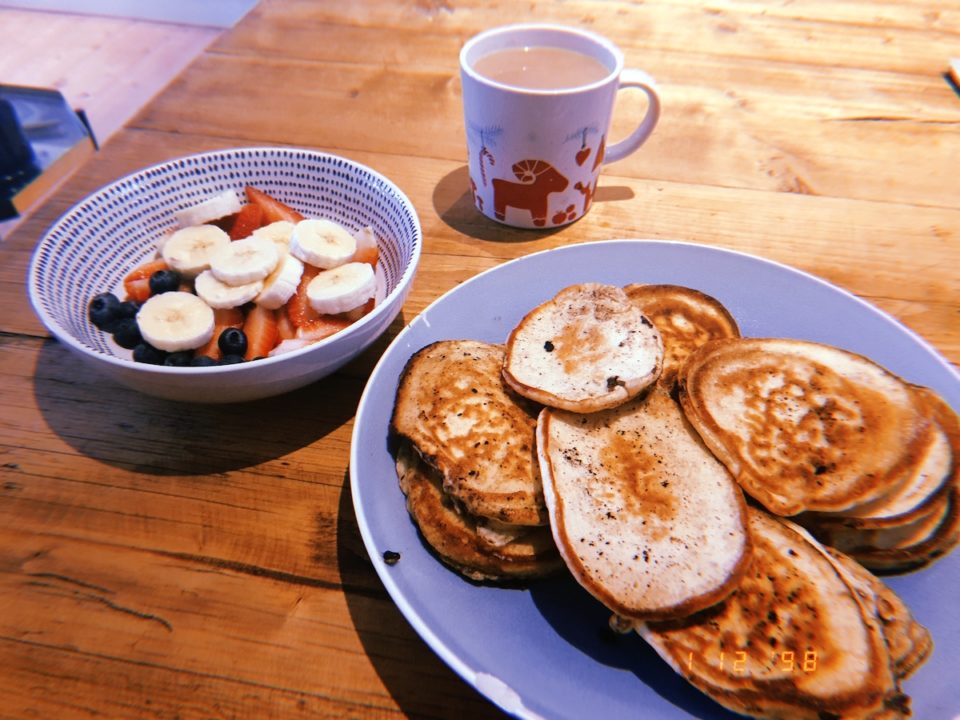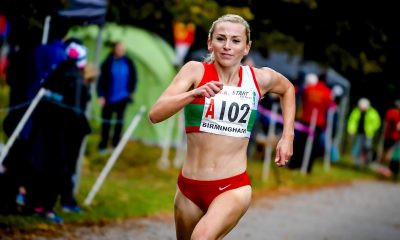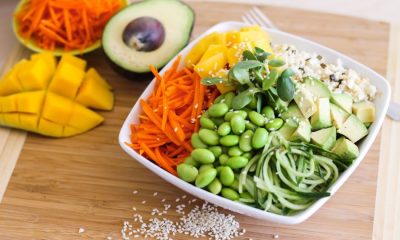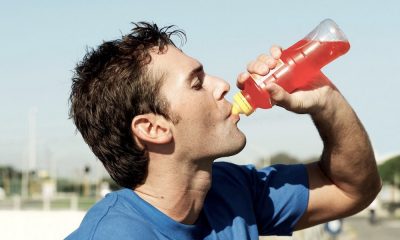
With an MSc in Sports Nutrition Emily Hosker-Thornhill has used her latest Fast10 blog to pass on some useful advice.
With the absolute panic of corona virus going round at the moment, you may be worrying about what you can do to stop getting ill.
Whilst you’re probably sick of singing happy birthday whilst you wash your hands, stocking up on loo roll or searching for anti-bacterial gel, I thought I’d talk about some nutritional advice that runners can use to help support their immune systems.
As athletes we’re constantly pushing our bodies during training. Being sick is not only boring and frustrating, but it can make you miss time off of training, which can lead to time out of competition. Competing or training whilst sick can also have a direct impact on performance levels and recovery.
In order to maintain a strong and robust immune system, athletes needs to consume a well balanced diet. This means you need to always be meeting your requirements for energy, carbohydrates, protein and all of your micronutrients (vitamins and minerals).
Having a diet that is deficient in protein or specific micronutrients is well known and researched to be a cause of immune dysfunction. So what can you do to make sure you’re eating well to support your immune system?
Getting the energy balance right
Being in an energy deficit diet will only impact your immune system negatively. By eating less than you need, you’re going to struggle to reach all the carbohydrate, protein, vitamin and mineral requirements. As athletes, we always need to think about our energy output. This means thinking about our daily routine and our training routine.
Working/studying/thinking/commuting can take up a lot of energy, and combine this with all the training we do, we need a lot of energy to match this.
Carbs, glorious carbs
It is well researched that carbohydrates reduce post exercise stress hormones and inflammation on the body. For endurance athletes, carbs really are our best friends. Not just for providing us with energy before exercise, but for replenishing our bodies after exercise. Carbohydrate intake during/after exercise helps to redistribute white blood cells (which help protect us from infection) around the body.
Chocolate milk post exercise is one of the best things for you. It has the absolute perfect balance of carbohydrates, protein, electrolytes, vitamins, minerals that you need after training. And it’s cheap. So I challenge you over the next few weeks to have this after each run…I really do think you’ll notice a difference!
For those who don’t drink dairy, try a chocolate nut milk alternative with a banana! Or if you’re super organised, make your own smoothie to drink after training! Chuck in some plant based milk, banana, fruit, oats, nuts and there you go!
Eat carbohydrates with each meal, and a carbohydrate based snacks before you go training to make sure you’re getting adequate energy to support your immune system. Some great sources of carbs are rice, grains, potatoes, sweet potatoes, pasta, bread, malt loaf, oat cakes, scotch pancakes and bananas. Endurance athletes need around 7-10g/kg of body weight each day of carbohydrates, so eat up!
Protein
A deficiency in protein is long known to affect your immune system, and can increase your susceptibility to infectious diseases.
Having low protein levels, reduces the amino acids in our body, which we need to regulate and produce antibodies and other natural killer cells. There is evidence suggesting that a diet high in protein can be associated with fewer respiratory illnesses.
Endurance athletes need 1.2-1.4g/kg of body weight each day of protein. These requirements can be met by having a protein source at each meal and after training. Sources of protein can be meat, fish, milk (including choccy milk), yoghurt, cheese, nuts, eggs, tofu/soy, beans and pulses.
Zinc, Vitamin C and D
All the vitamins and minerals are good for us, and are essential to having a healthy balanced diet. However, the top three that crop up most in research for immune function are Zinc, Vitamin C and Vitamin D.
Zinc is a mineral that affects multiple aspects of the immune system. From the barrier of the skin, to gene regulation of white blood cells, zinc is a great mineral for immune function. It has anti-inflammatory and antioxidant properties, and helps fight off invading bacteria and viruses.
Some of the best sources of zinc are oysters, shellfish, meat, beans and pulses, dairy (milk, cheese, yoghurt), and nuts.
Vitamin C is probably the most famous for sure, it’s the one supplement you reach for as soon as you have a cold, but why? Vitamin C acts as an antioxidant, which is essential for protecting cells from free radicals. It also is essential in collagen synthesis, which helps with the healing of wounds on the skin and it used up rapidly during infection.
(If you’re confused about what an antioxidant is, or free radicals etc it’s basically when the body reacts to stress from the environment, or when we process food. If the body cannot process and remove these free radicals, oxidative stress can result which can harm the cells and body function. Antioxidants help to neutralise these free radicals in our bodies and boost our overall health.
Sources of vitamin C include oranges, grapefruit, red pepper, kiwi fruit, strawberries, broccoli, potatoes, tomatoes, spinach, leafy greens, sweet potatoes and brussels sprouts!
Vitamin D is classically known to support our bone health and function, but that’s not all it does. In recent years, the effects of Vitamin D deficiency on immune function have become clear. It enhances the antimicrobial effects of immune cells, which basically helps us fight off bacteria, viruses and other microorganisms that cause disease. Vitamin D has also been shown to protect against upper respiratory tract infections.
Dietary sources of vitamin D are fatty fish like trout, salmon, mackerel and tuna, red meat, liver, egg yolks and fortified foods such as fat spreads or breakfast cereals, but we can also get it from the sun.
In the UK where it’s pretty gloomy in the winter, the sunlight doesn’t contain as much UVB radiation so we need to get our Vitamin D from our diet or a supplement. However from about late March to the end of September, we usually get all the Vitamin D from sunlight!
(Heads up – get your vitamins and minerals from food where possible!! Not only do you save money, you absorb more of the nutrients, and get a range of vitamins and minerals from the food! And it’s tastier)
Probiotics
Research behind the use of probiotics in sports has been growing over the fast few years, with the focus on upper respiratory tract infections and gastrointestinal (GI) symptoms. Both of these are common amongst endurance athletes.
Research has shown that many athletes may benefit from adding probiotics to their diet, especially when used over a long period of time, to minimise upper respiratory tract infections and GI problems.
Sources of probiotics include yoghurt, kefir, sauerkraut, tempeh, kimchi, kombucha and pickles!
In summary
Hopefully this will help guide your next supermarket trip to pick up a few new things, or to add a variety of foods to your diet! The key to supporting your immune system is to eat a range of fruits and veg and to make sure you’re eating enough. Other than that, train smart and rest smart and you should be fighting fit for the season ahead!
Are you a fan of Fast Running? Then please support us and become a patreon. For as little as the price of a monthly magazine you can support Fast Running – and it only takes a minute. Thank you.



















